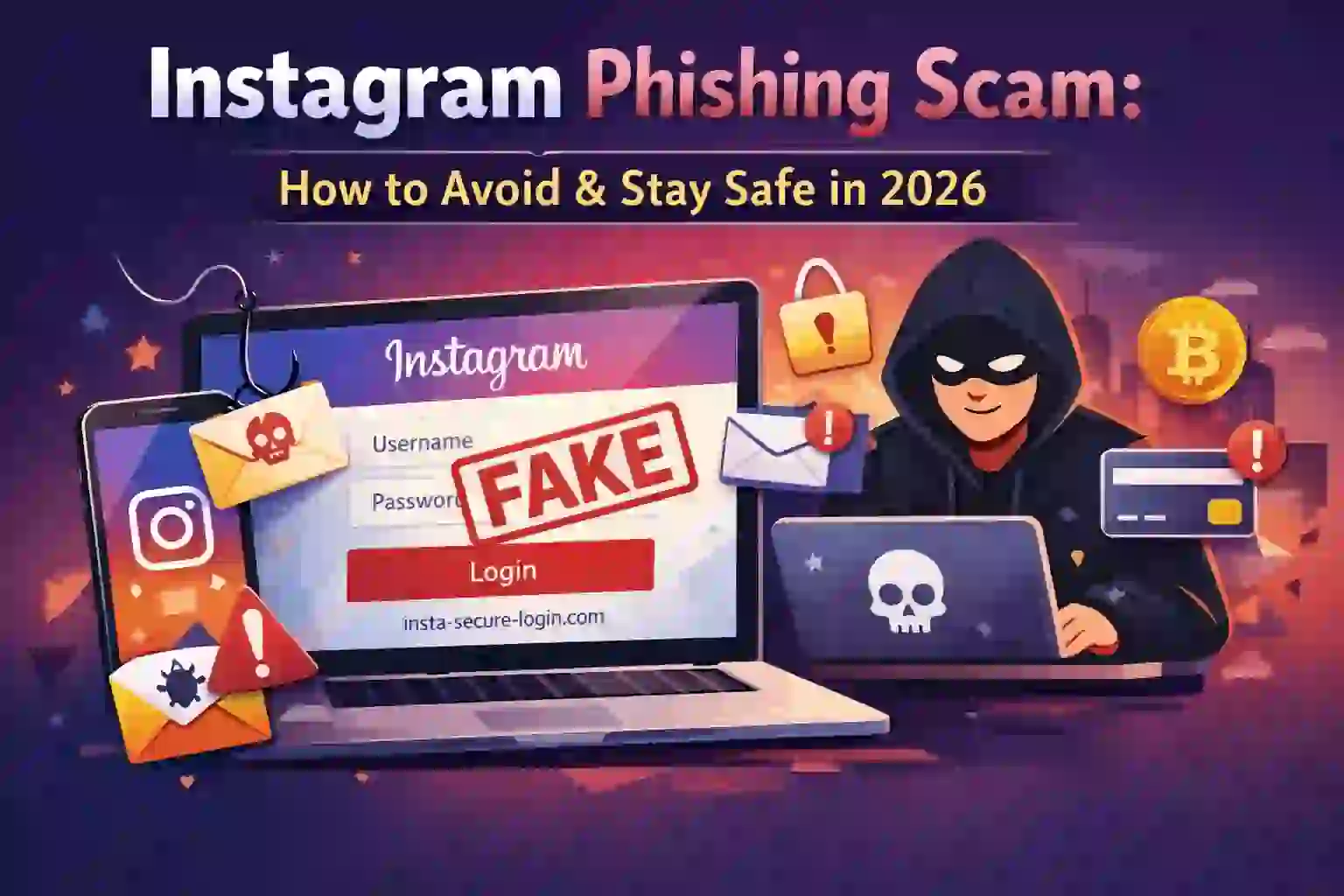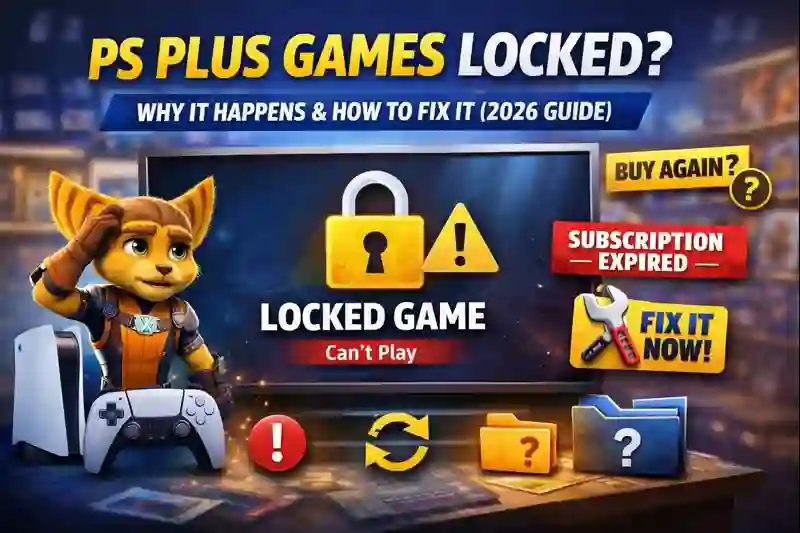|
Getting your Trinity Audio player ready...
|
How to Stay Safe While Playing Online Video Games: Protect Your Privacy and Security
Online video games are fun, but they can also put your privacy and security at risk. It’s important to know the dangers and how to protect yourself.
One big risk is cybersecurity. Hackers may try to steal your personal information or break into your gaming account. Using a strong, unique password and enabling two-factor authentication can help keep your account safe. Also, many gaming platforms collect your data, so make sure to adjust your privacy settings to control who can see your information.
Another risk is scams. Players or scammers may try to trick you into sharing personal details or clicking on fake offers. Be careful with suspicious links and avoid scams, like fake giveaways or offers for in-game items. Protect your financial details by being careful with purchases in games to avoid overspending or fraud.
Lastly, be aware of toxic behavior like cyberbullying or harassment in online communities. Protecting your mental health is just as important as your privacy.

Table of Contents
Toggle1. What is the risk of playing an online video game?
Playing online video games can be a lot of fun, but there are several risks you should be aware of:
- Doxxing: Doxxing is when someone shares your private information, like your address or phone number, online without your permission, usually to harm or embarrass you. It’s illegal and can lead to harassment or worse. It’s important to protect your personal details online to avoid this happening.
- Cybersecurity Risks: Hackers may target your account, stealing personal information or infecting your device with malware. Weak passwords and unsecured networks can make you more vulnerable.
- Privacy Issues: Online games often collect personal data, and not all platforms have strong privacy protections. You could unknowingly share information with strangers, exposing yourself to risks.
- Scams and Fraud: Scammers often target gamers with fake offers, phishing attempts, or fraudulent in-game purchases. Players might also be tricked into giving away their account details.
- Toxic Behavior and Cyberbullying: Online gaming communities can sometimes be hostile, with players facing harassment, bullying, or verbal abuse. This can lead to stress, anxiety, or a negative gaming experience.
- Addiction: Spending too much time gaming can lead to unhealthy habits, including neglecting real-life responsibilities, social isolation, or physical health issues like eye strain or poor posture.
- Exposure to Inappropriate Content: Some games may expose players, especially younger ones, to inappropriate or violent content. User-generated content can also be harmful or offensive.
- In-Game Purchases: Many games have microtransactions or loot boxes, which can lead to overspending or getting caught in “pay-to-win” systems.
- Social Engineering: Some players may try to manipulate or trick others into sharing personal information or giving up their accounts through social engineering tactics.
- Identity theft: Identity theft in online gaming occurs when someone steals your personal information, like your name, email, or payment details, through hacking or scams. This can lead to fraud or unauthorized purchases. Protect your account with strong passwords, avoid sharing personal info, and enable two-factor authentication for security.
By being aware of these risks and taking steps to protect yourself, you can enjoy online gaming safely.
READ MORE ABOUT – Why is My iPhone Getting Hot? 11 Reasons and Fixes
2. How You Can Stay Safe While Online Gaming
One of the biggest risks when playing online is the potential for identity theft or personal data being misused. Many online games, especially multiplayer games, require players to register with an email address, username, and sometimes even payment information.
Tip: Use a Strong Password
Your gaming accounts should have strong, unique passwords that are difficult for others to guess. Avoid using easily guessable information, such as your name, birthday, or “password123.” Instead, use a combination of uppercase and lowercase letters, numbers, and symbols. Tools like password managers can help you generate and store strong passwords securely.
Tip: Be Mindful of Sharing Personal Information
Never share sensitive personal details like your full name, address, phone number, or financial information with strangers in a game. Even if the person seems friendly or trustworthy, it’s essential to maintain privacy to prevent potential identity theft or fraud.
Stay Safe Online Quiz
As part of staying secure while gaming, consider taking a “Stay Safe Online Quiz.” These quizzes test your knowledge of common cyber threats and ways to avoid them while gaming. Answering the questions correctly will help you become more aware of how to protect your personal information online. Here’s an example of a few questions you might find in an online safety quiz:
3. Enable Two-Factor Authentication (2FA)
Two-factor authentication (2FA) is an additional layer of security that helps protect your gaming accounts. With 2FA enabled, even if someone tries to hack into your account, they won’t be able to access it without the second authentication method.
Most gaming platforms like Steam, PlayStation, Xbox, and Epic Games offer 2FA as a feature. You can enable it through your account settings. Once enabled, you’ll need to enter a code sent to your phone or email in addition to your password when logging into your account.
4. Use a VPN for Extra Privacy
A VPN (Virtual Private Network) helps protect your online privacy by masking your IP address. This is especially useful if you’re playing on public Wi-Fi or an unsecured network, where hackers may try to intercept your data. With a VPN, your internet traffic is encrypted, making it harder for cybercriminals to track your online activity or hack into your accounts.
Tip: Choose a Trusted VPN Provider
Make sure to select a reputable VPN provider with strong encryption and no logging policy. Many VPN services have paid and free versions, but a paid VPN is generally more secure and offers better privacy features.
READ MORE ABOUT – iPhone Pro vs Pro Max: Which One Is Right for You?
5. Stay Cautious of Phishing Scams
Phishing scams are one of the most common ways cybercriminals try to steal personal information from gamers. These scams typically involve fake emails or messages that appear to come from a legitimate source, such as your gaming platform or an in-game vendor. They may ask you to click on a link or enter your account details to “verify” your identity or claim a prize.
Tip: Don’t Click on Suspicious Links
Always be cautious when receiving unsolicited emails or messages asking for personal details. If you receive a message claiming to be from your gaming platform, don’t click on the link in the message. Instead, go directly to the official website and log in to your account to check for any updates.
If you’re unsure whether an email or message is legitimate, contact the gaming platform’s customer support for verification.

6. Beware of Online Predators
One of the darker sides of online gaming is the presence of online predators who target young or vulnerable players. These individuals may try to gain the trust of players through manipulation and deceit, often attempting to exploit or groom them for inappropriate or harmful purposes.
Tip: Talk to Someone You Trust
If someone in a game is making you feel uncomfortable or asking inappropriate questions, it’s essential to talk to a trusted adult or a friend about the situation. Reporting the individual through the game’s reporting system is another critical step to ensuring your safety and the safety of others.
Tip: Don’t Share Personal Details
As mentioned earlier, avoid sharing your personal information with other players. Never tell someone where you live, go to school, or anything that could potentially reveal your location or identity.
READ MORE ABOUT – Exploring the Best Free Video Games of 2024: Transforming the Gaming World
7. Use Safe Games and Parental Controls
If you’re a parent and your child plays online video games, it’s important to take steps to ensure they are playing safe games. Not all online games are appropriate for every age group, and some may expose children to inappropriate language, violent content, or online predators.
Tip: Use Parental Controls
Most gaming platforms, including PlayStation, Xbox, and Nintendo, offer parental controls that allow you to set limits on what content your child can access. You can also control who they interact with, limit in-game purchases, and monitor their activity.
Tip: Check Game Ratings
Look for age-appropriate games based on the ratings provided by organizations like the ESRB (Entertainment Software Rating Board) or PEGI (Pan European Game Information). These ratings give parents an idea of the content and age appropriateness of each game.
8. Recognize the Signs of Cyberbullying
Online gaming communities can sometimes be a breeding ground for cyberbullying. Harassment, name-calling, and threats are sadly common in many online games, especially in competitive or high-stakes environments. It’s important to recognize the signs of cyberbullying and know how to protect yourself.
Tip: Report and Block Abusive Players
If you encounter bullying or harassment while gaming, make use of the reporting and blocking features available in most games. Many platforms allow you to mute or block players who are behaving inappropriately. In extreme cases, you may want to consider filing a report with the game developer or contacting authorities.
Stay Safe Online Quiz: Bullying Awareness
Some safety quizzes focus on recognizing and addressing cyberbullying. For example, a “Cyber Safety Quiz” might ask questions such as:
- What should you do if another player is harassing you in a game?
- A) Respond with insults
- B) Report and block the player
- C) Ignore the situation
- How can you tell if someone is bullying you in a game?
- A) They make fun of you or your abilities
- B) They help you learn the game
- C) They offer you in-game rewards
Understanding the signs of bullying and taking appropriate action is crucial for maintaining a safe and enjoyable gaming experience.
READ MORE ABOUT – Free vs. Paid Antivirus Software: Which Offers the Best Protection for Your Device?
9. Protect Your Gaming Devices
Security isn’t just about protecting your online accounts—it’s also about securing your devices. Your gaming console, PC, or mobile device can be vulnerable to malware, hacking, or data theft if not adequately protected.
Tip: Keep Software Updated
Always make sure your gaming device and any related software are up to date. This includes updates for the operating system, anti-virus software, and game clients. Many updates contain important security patches that can help protect you from known threats.
Tip: Use Antivirus Software
If you’re gaming on a PC, it’s essential to use reputable antivirus software to detect and remove malware. Even though gaming is fun, downloading files or mods from unreliable sources can expose your device to viruses or other harmful software.
10. Be Mindful of Time Spent Playing
Finally, it’s important to balance your gaming with other activities. While playing games is a lot of fun, spending excessive amounts of time in front of a screen can have negative effects on your mental and physical health.
Tip: Take Regular Breaks
To avoid burnout or eye strain, remember to take regular breaks while gaming. Get up, stretch, and rest your eyes to reduce the risk of fatigue. Setting time limits can also help you stay healthy and maintain a healthy balance between gaming and other activities.

Conclusion: Stay Safe, Have Fun, While Playing Online Video Games
Online video gaming can be a fun and rewarding experience if you follow the proper safety measures. Protecting your personal information, using strong passwords, enabling two-factor authentication, and being cautious of online threats are all essential steps to keeping your online gaming experience safe and enjoyable.
Whether you’re a beginner or an experienced gamer, staying cybersmart is critical. To test your knowledge of online safety, take a Safety Quiz or Cyber Security Quiz to ensure you’re up to date with the best practices. By following these essential tips and staying informed, you can enjoy the exciting world of online gaming without compromising your security or well-being.
READ MORE ABOUT – The 11 Best Games to Play When You’re Bored
FAQs :
1. What are the main risks of playing online video games?
Answer:
The main risks of online gaming include:
- Cyberbullying: Players may encounter toxic behavior, insults, or harassment.
- Phishing and Scams: Malicious users may attempt to steal your personal information by pretending to be game developers or customer support.
- Privacy Concerns: Sharing too much personal information can lead to identity theft or unwanted exposure.
- Inappropriate Content: You may come across graphic violence, explicit language, or adult content.
- Malware and Viruses: Downloading mods or files from untrustworthy sources can introduce harmful software to your device.
To minimize these risks, always use strong passwords, enable two-factor authentication (2FA), report suspicious activity, and monitor what your children are doing online.
2. How can I keep my gaming accounts secure?
Answer:
To secure your gaming accounts, follow these steps:
- Use Strong, Unique Passwords: Create complex passwords using a mix of letters, numbers, and symbols. Avoid common phrases or personal information.
- Enable Two-Factor Authentication (2FA): Whenever possible, activate 2FA for an extra layer of security. This means you’ll need to enter a verification code sent to your phone or email when logging in.
- Change Passwords Regularly: Update your gaming account passwords periodically to avoid prolonged exposure if an account gets compromised.
- Use a Password Manager: If managing passwords becomes difficult, use a reputable password manager to store and generate secure passwords.
3. What is phishing, and how do I avoid it while gaming?
Answer:
Phishing is when attackers trick you into giving away sensitive information (like passwords or credit card details) by pretending to be someone you trust, like a game developer or platform support team.
To avoid phishing scams:
- Be Wary of Suspicious Links or Emails: Don’t click on any links or open attachments in unsolicited messages.
- Verify Authenticity: Always double-check the source of an email or message. If you’re unsure, visit the official website or contact customer support directly.
- Avoid Giving Personal Information: Never share personal data, such as your password, through email or instant messaging.
4. What is two-factor authentication (2FA), and how do I set it up?
Answer:
Two-factor authentication (2FA) is a security measure that requires two forms of identification before granting access to your account. This adds an extra layer of protection, making it harder for hackers to gain unauthorized access.
How to Set It Up:
- Go to your gaming account’s security settings.
- Select “Two-Factor Authentication” or “Security Settings.”
- Choose your preferred method for receiving verification codes (usually through SMS, email, or an authentication app).
- Follow the instructions to complete the setup.
After 2FA is enabled, you’ll need to enter a verification code along with your password every time you log in.
5. How can I protect my child while they play online games?
Answer:
To protect your child while they game online, follow these steps:
- Set Up Parental Controls: Most gaming platforms offer parental controls that allow you to restrict access to age-inappropriate content, limit chat features, and block in-game purchases.
- Educate Your Child: Teach your child not to share personal information online and encourage them to report inappropriate behavior or players.
- Monitor Their Gameplay: Keep track of the games they play and who they interact with. Many platforms offer activity reports that show their online interactions.
- Use Age-Appropriate Games: Ensure that your child is only playing games that are rated for their age group, according to systems like the ESRB or PEGI.
6. How do I report inappropriate behavior or cheating in online games?
Answer:
To report inappropriate behavior or cheating in online games:
- Locate the Report Option: Most online games and platforms have a built-in reporting feature. Look for it in the player’s profile or in the game’s menu.
- Provide Evidence: If possible, take screenshots or record the incident, especially if it involves bullying, threats, or cheating. This will help moderators assess the situation more effectively.
- Describe the Incident: When reporting, provide as much detail as possible (e.g., time, behavior, specific violations).
- Follow Up: After submitting the report, check if the game’s support team has taken action, or follow up if necessary.
7. How can I prevent my gaming device from being hacked?
Answer:
To prevent your gaming device from being hacked, follow these steps:
- Update Your Software Regularly: Always install the latest updates for your gaming system or PC. These updates often include security patches that fix vulnerabilities.
- Use Antivirus Software (For PC Gamers): Install reputable antivirus software that scans for malware, spyware, and viruses. Ensure it is updated regularly.
- Secure Your Wi-Fi Network: Use strong, unique passwords for your home Wi-Fi and enable WPA3 encryption for added protection.
- Avoid Using Public Wi-Fi: Public Wi-Fi networks are less secure, making it easier for hackers to intercept your data. If you must use public Wi-Fi, consider using a VPN.
8. What are some common signs that my account has been hacked?
Answer:
Here are some common signs that your gaming account might have been hacked:
- Unusual Activity: You notice strange login times or activities, like purchases or games being played without your knowledge.
- Password Changes: You can no longer access your account because the password has been changed.
- Suspicious Emails: You receive an email stating that your account details have been changed, but you didn’t initiate the change.
- Unfamiliar Contacts: Friends or teammates may report strange messages or requests from your account.
If you suspect your account has been hacked, immediately change your password and contact customer support for further assistance.
9. Is it safe to game on public Wi-Fi?
Answer:
While public Wi-Fi is convenient, it is generally not safe for online gaming, as it is easier for hackers to intercept your data.
To protect yourself while gaming on public Wi-Fi:
- Use a VPN: A Virtual Private Network (VPN) encrypts your internet connection, making it difficult for hackers to access your data.
- Avoid Sensitive Transactions: Don’t make purchases or input sensitive information like passwords or credit card details while connected to public Wi-Fi.
- Use HTTPS Websites: If you need to log into your gaming platform, make sure the website URL starts with “https,” which indicates that the connection is secure.
10. How can I manage my screen time while gaming?
Answer:
Managing screen time is essential for maintaining a healthy balance between gaming and other responsibilities. Here’s how you can manage it:
- Set Time Limits: Many gaming consoles and platforms allow you to set daily or weekly gaming limits. Use these settings to control how much time you spend playing each day.
- Schedule Breaks: Set a timer to remind yourself to take breaks. The American Academy of Pediatrics recommends taking a 10-15 minute break every hour of screen time.
- Engage in Other Activities: Balance your gaming time with physical activity, reading, or spending time with friends and family. This will ensure gaming doesn’t negatively impact other areas of your life.
11. What is a safety quiz for online gaming, and how does it help?
Answer:
A Safety Quiz for online gaming is a tool designed to test your knowledge of best practices for staying safe while gaming. It usually includes questions on topics like:
- How to recognize phishing attempts
- Proper account security measures
- What to do if you encounter cyberbullying
- How to protect personal information
By regularly taking online gaming safety quizzes, you can ensure that you’re up-to-date on the latest safety protocols and be better equipped to handle potential risks in the gaming world. Some platforms even provide quizzes that assess your cybersecurity awareness and help you understand common threats, such as viruses or malware.









